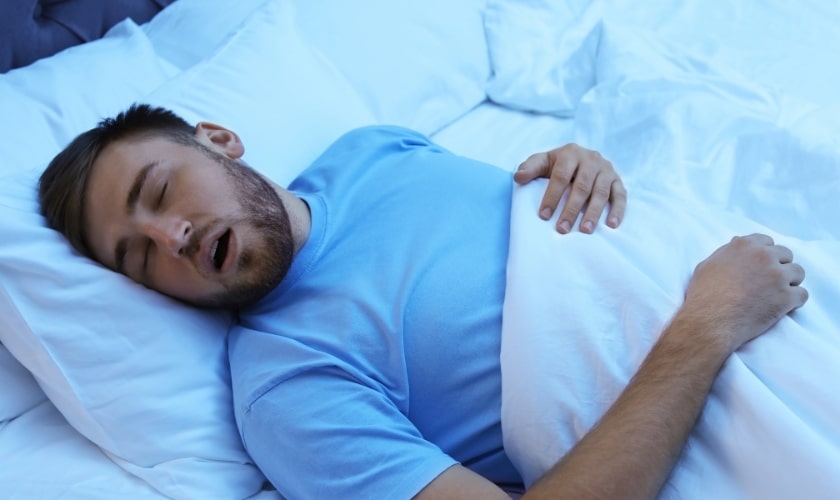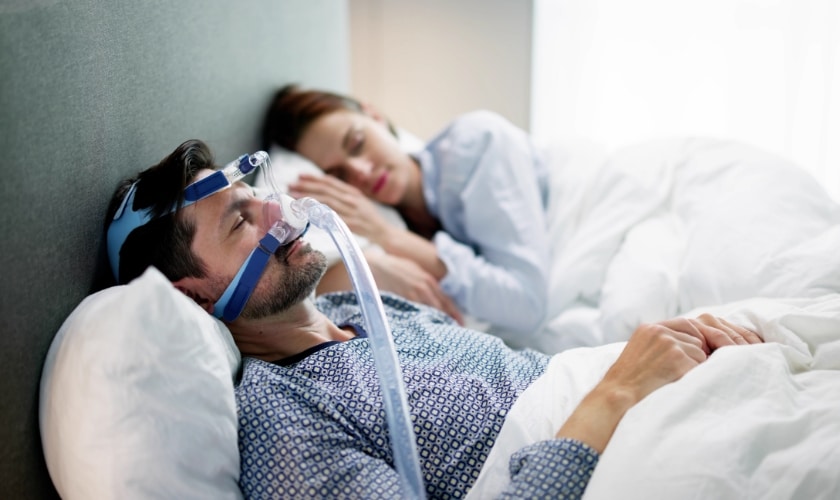How Untreated Sleep Apnea Increases Your Risk of Gum Disease? Rancho Cucamonga, CA

Sleep apnea is not always considered a serious oral issue, but if left untreated, it can have severe consequences that most people are not aware of. It also increases the risk of gum disease. We at Choice Family Dentistry want to help you understand how sleep apnea and gum disease go hand-in-hand and what you can do to avoid harming your gums and teeth.
What Is Sleep Apnea?
Sleep apnea is a disorder where breathing stops and resumes many times during sleep. These interruptions in breathing can happen hundreds of times during the night, which influences the level of oxygen your body gets. Obstructive sleep apnea, which is the most prevalent form, occurs when the muscles at the back of the throat relax excessively, which causes the airway to shut temporarily.
Most patients who have sleep apnea experience troubled sleep and are unaware of it. This condition, if not treated, causes a host of medical conditions, including the risk of gum disease. But why does this happen?
The Relationship Between Sleep Apnea and Gum Disease
When you deal with poor sleep due to breathing troubles, your body is put into “fight or flight” mode. This discharges excess stress chemicals like cortisol. Elevated cortisol can affect your immune system, so your body struggles to fight off infections like the bacteria that cause gum disease.
In addition, sleep apnea also causes dry mouth when your mouth fails to produce sufficient saliva flow. It is vital to neutralize oral acids and dispose of food particles and bacteria. Without enough saliva, the bacteria in the mouth multiply, creating a higher risk of gum disease.
Why Does Dry Mouth Make a Difference?
Dry mouth is not unusual among people with untreated sleep apnea. Not only is this uncomfortable, but it also compromises oral health. A dry mouth allows plaque and tartar growth, resulting in gum disease.
The longer you allow sleep apnea to go untreated, the greater the risk of your gums becoming infected. Symptoms of gum disease are:
- Bleeding gums when you brush or floss
- Swollen or red gums
- Persistent bad breath
- Loose teeth or gums pulling away from your teeth
If you have had any of these symptoms, you should see a dentist without delaying treatment anymore.
The Role of Treatment in Reducing Risk
Treatment of sleep apnea helps reduce your risk of gum disease. There are several treatments that not only can help you sleep, but also take care of your oral health:
- Oral Appliances: A custom mouth guard can reposition your jaw to keep the airway from closing while you sleep.
- Lifestyle Changes: Weight loss, sleeping on one’s side, and avoiding alcohol can improve your sleep quality.
Untreated sleep apnea doesn’t just affect your sleep – it can damage your gums, teeth, and overall oral health. If you’ve been diagnosed with sleep apnea in Rancho Cucamonga, it’s important to talk to your dentist about how it might be affecting your gums. Treating both sleep apnea and gum disease can work wonders for your oral and overall health.





